On August 18, the opening ceremony of Jiangsu University’s 2025 “Chinese Government Scholarship” International Summer School was grandly held at the Multi-functional Lecture Hall of the Youth Faculty Apartment. With the theme “Tast the Future: Innovative and Practices Program on Smart Food Detection and Processing”, this summer school builds on the strengths of Jiangsu University’s discipline of Food Science and Engineering. It has attracted 38 outstanding participants from 16 countries, including Belarus, Serbia, Guyana, the Solomon Islands, Vietnam, and Papua New Guinea, as well as more than 100 Chinese and international faculty members and students from our university.
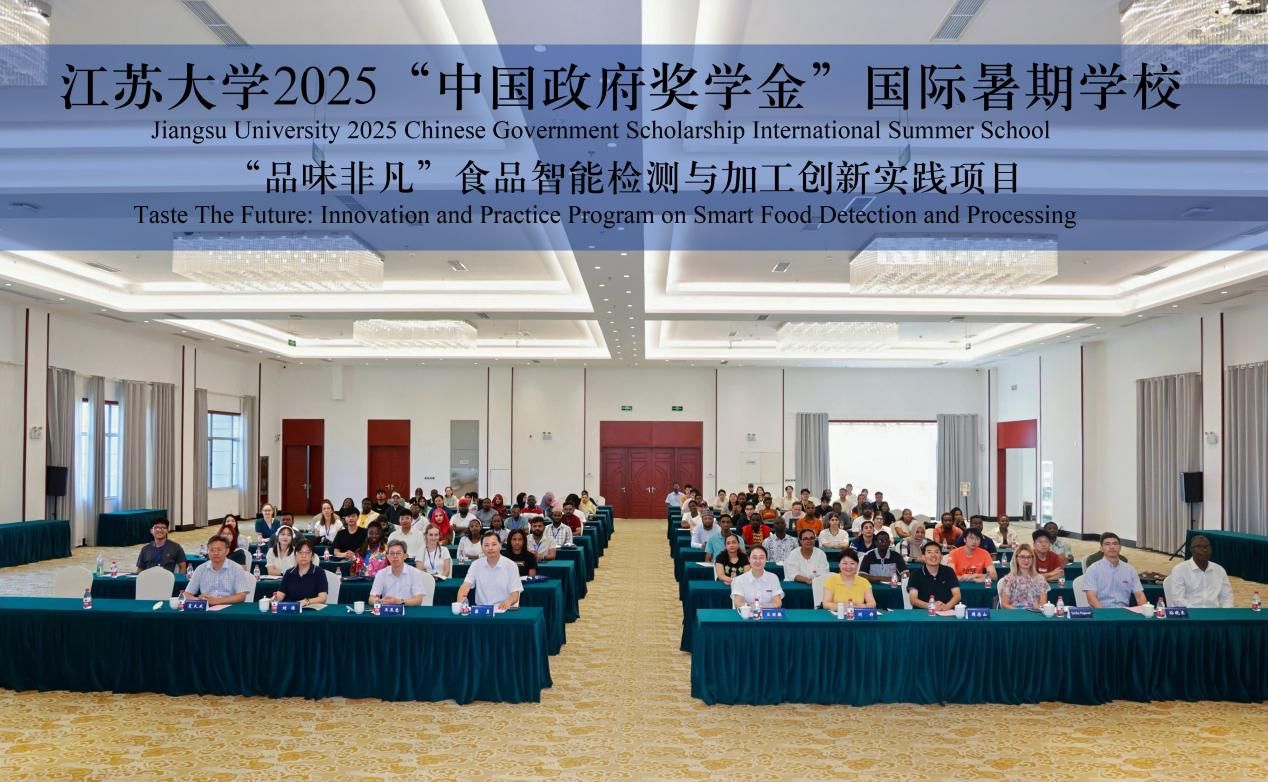
The ceremony was attended by Cui Yong, Director of the Office of International Cooperation and Exchanges of Jiangsu University; Wang Limin, Secretary of the Party Branch of the Overseas Education College; Wang Yuzhong, Deputy Director of the Publicity Department of the CPC Committee; Liu Dan, Deputy Secretary of the Communist Youth League Committee of Jiangsu University; Liu Jie, Deputy Director of the Academic Affairs Office; Zhou Cunshan, Vice Dean of the School of Food and Biological Engineering; Xia Daqing, Deputy Secretary of the CPC Committee; as well as guests including Senka Popović, Head of the Packaging Laboratory of the Faculty of Technology, University of Novi Sad, Serbia. The opening ceremony was hosted by Sun Xiaodong, Vice Dean of the Overseas Education College.
The ceremony commenced with international student Tricia’s rendition of the Chinese classical folk song “Crescent Moon.”
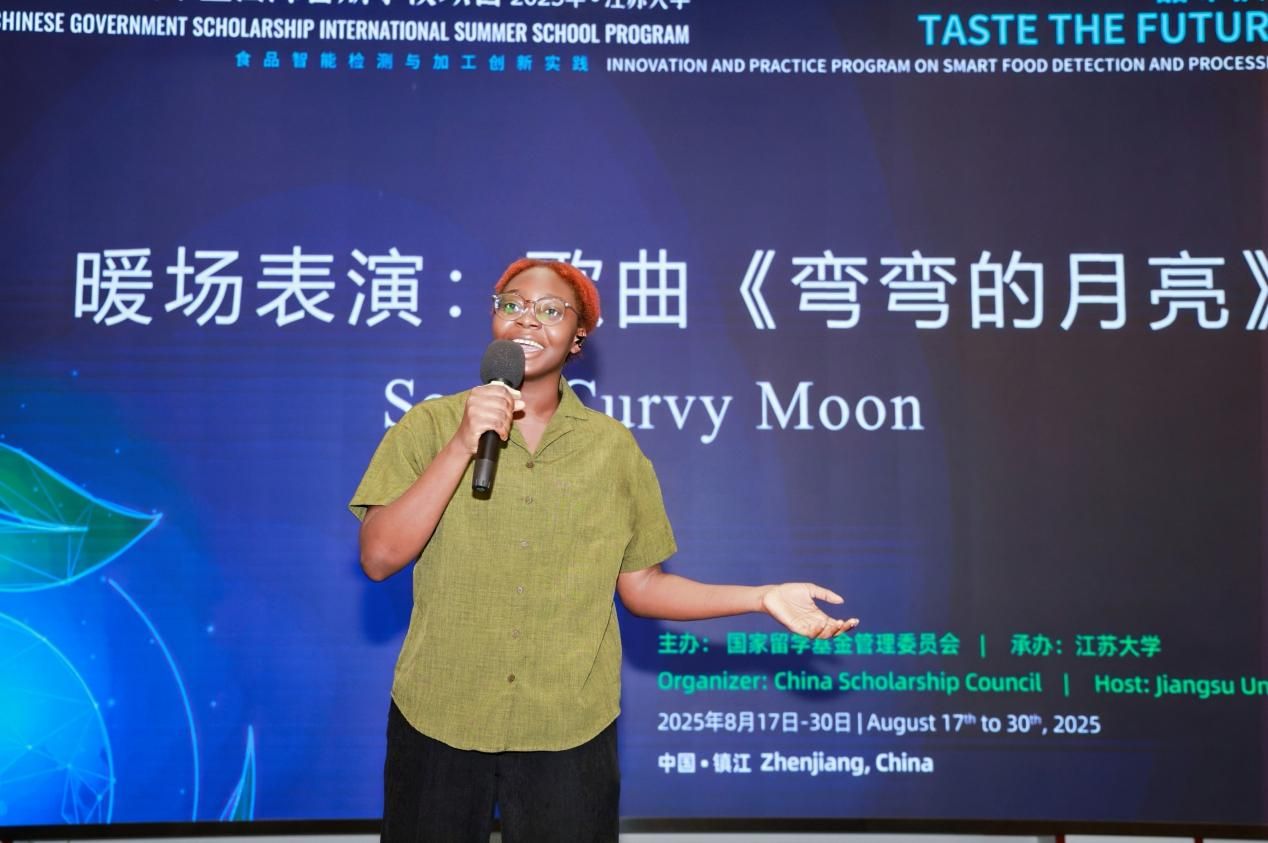
On behalf of Jiangsu University, Wang Limin extended a warm welcome to all participants and expressed sincere gratitude to the China Scholarship Council and the university’s departments for their strong support. She noted that Jiangsu University, a comprehensive institution with strengths in engineering, has 16 disciplines—including Agricultural Science and Engineering—ranked in the global top 1% by ESI, and has achieved remarkable results in international education. This summer school, she emphasized, aims to provide a high-level platform for global youth to engage in academic exchange and cross-cultural practice. She encouraged participants to explore the frontiers of intelligent food science and technology with an open mind, immerse themselves in Chinese culture, and become friendly envoys promoting mutual learning among civilizations.
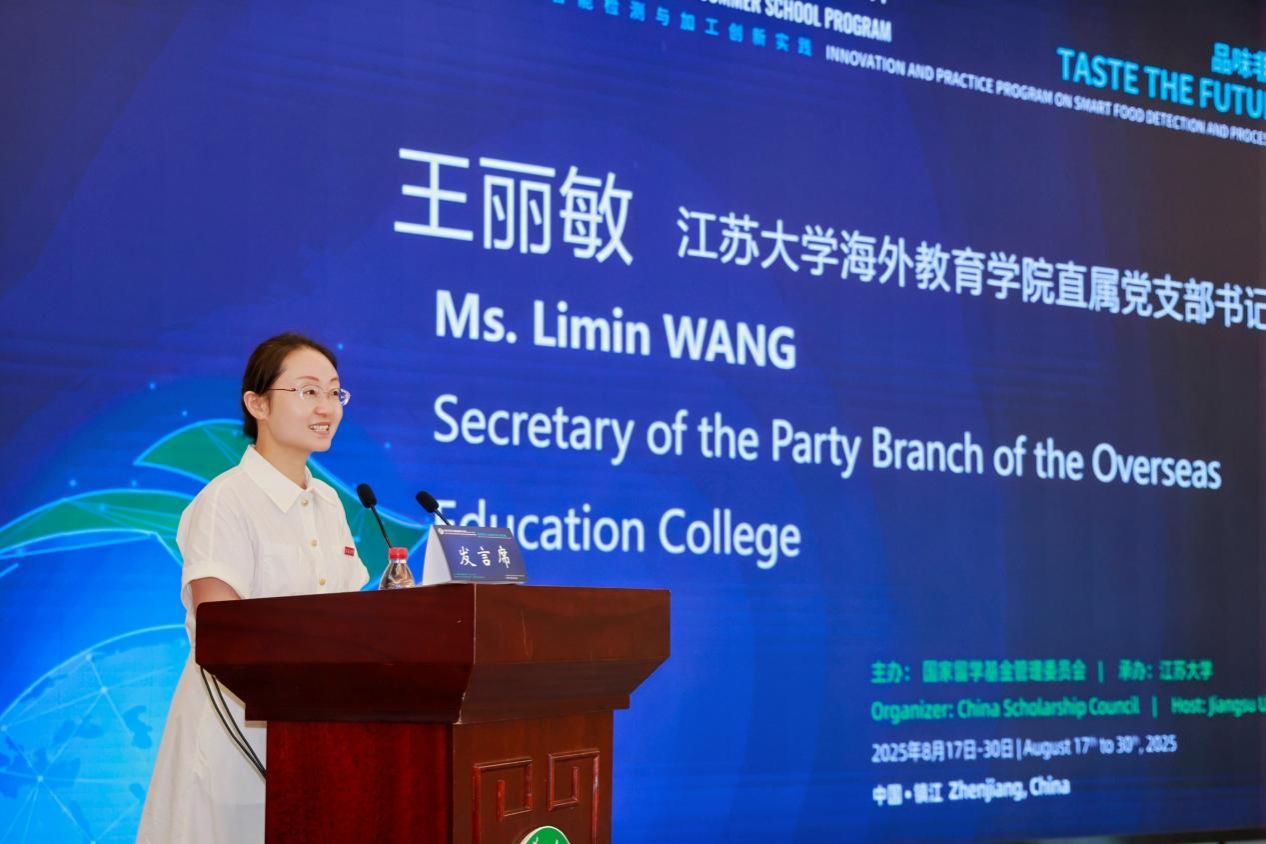
Guo Lina, a faculty representative from the School of Food and Biological Engineering, introduced the program highlights under the theme “Technology Empowering Food Innovation.” She noted that through frontier lectures, enterprise visits, and laboratory practice, participants will gain an in-depth understanding of how intelligent testing and processing technologies are reshaping the food industry, while experiencing China’s practice of “making life better through technology.”
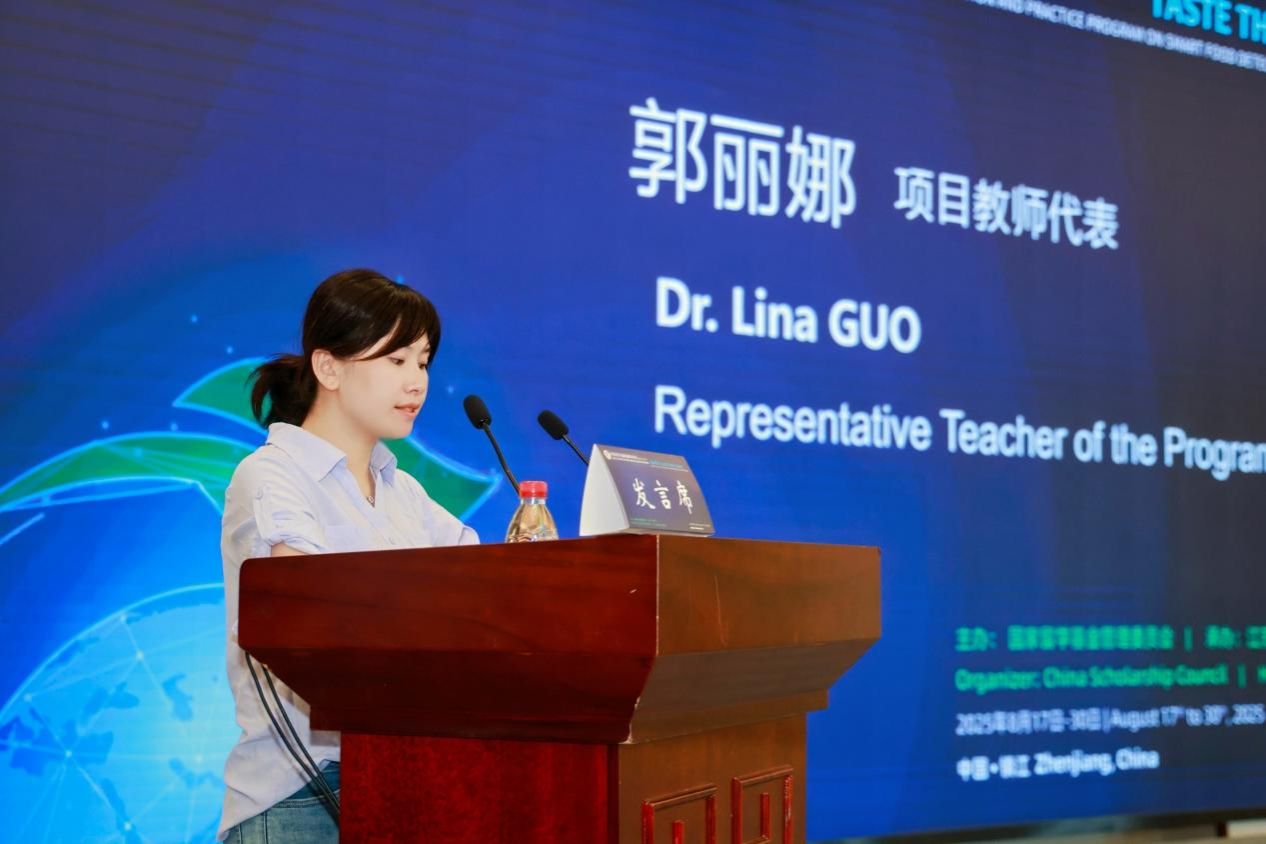
Minh Tri Truong, a student representative from Vietnam, shared his expectations for China’s intelligent food technologies with reference to a Vietnamese proverb, “Seeing is believing.” He called on his fellow participants to cherish this opportunity, to be not only explorers of academic knowledge but also bridges of cultural exchange, and to work together in addressing global challenges in food safety.
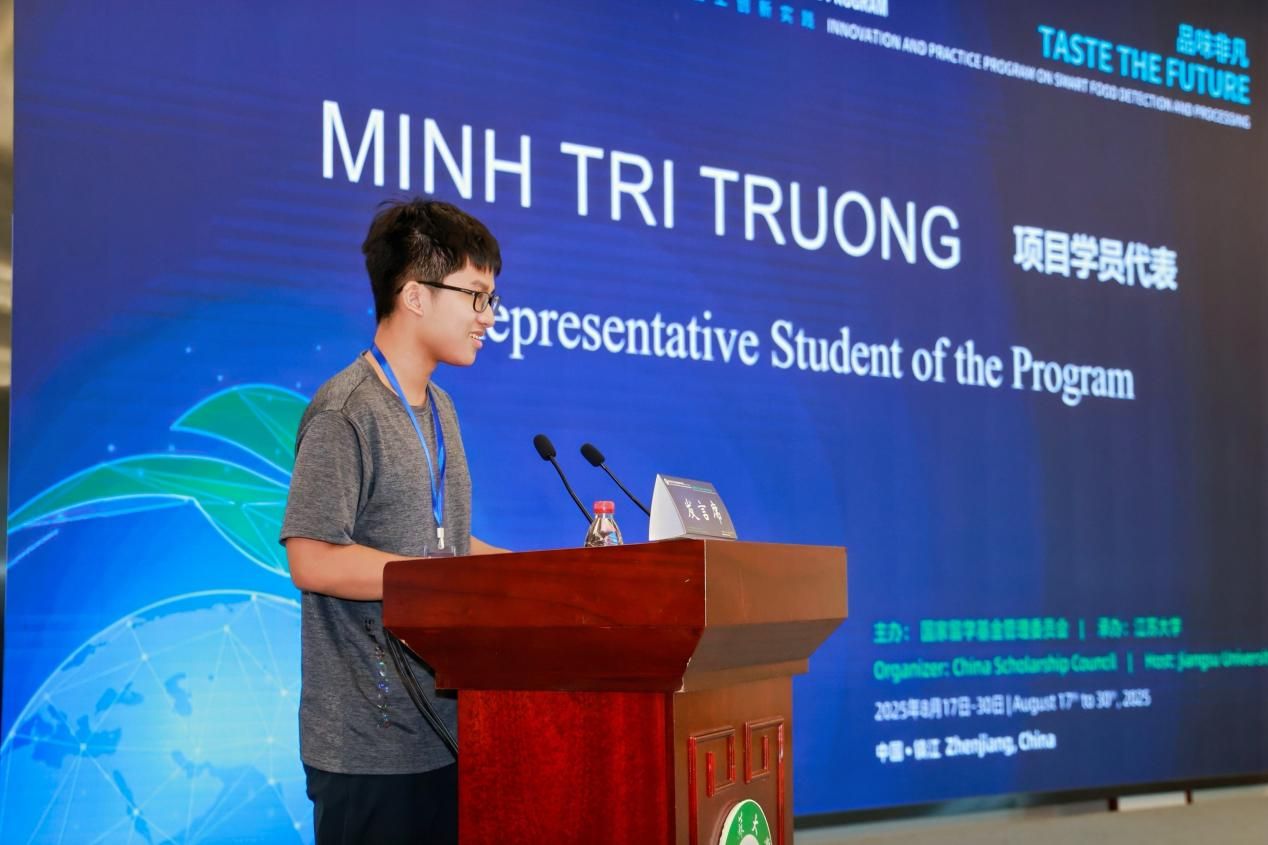
This two-week summer school features an integrated model of “professional knowledge + enterprise practice.” Participants will take part in seminars on intelligent food testing technologies, hands-on laboratory sessions, and visits to well-known food and pharmaceutical enterprises such as the R&D Center of Hengshun Vinegar Industry, the Zhenjiang Vinegar Culture Museum, the Intelligent Brewing Plant of Guoyuan Group, and Jiangsu 707 Natural Pharmaceutical Co., Ltd., gaining a comprehensive understanding of China’s innovative achievements in the field of Food Science and Engineering. (School of Food and Biological Engineering, Overseas Education College)

